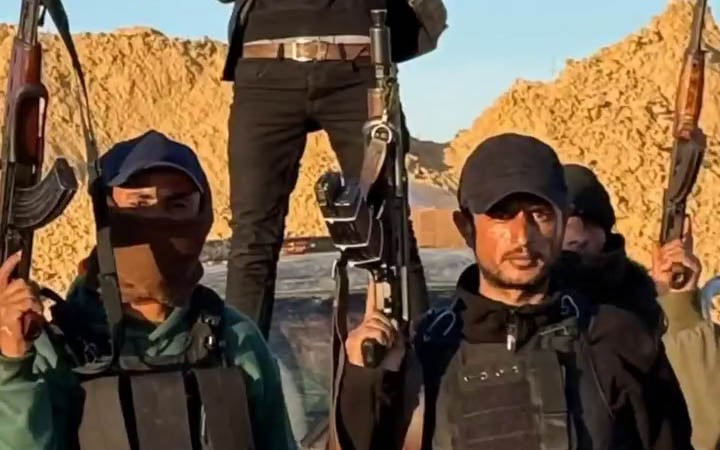Weapons Supplied to Rival Clan in Rafah Amid Mounting Humanitarian Crisis
Israeli Prime Minister Benjamin Netanyahu has confirmed reports that Israel is supplying weapons to clans in Gaza that oppose Hamas. The revelation has ignited fierce political backlash and concerns about escalating instability in the already war-torn region.
In a brief video posted to social media, Netanyahu defended the move, stating: “It only saves the lives of Israeli soldiers, and publicising it only helps Hamas.”

Who Is the Abu Shabab Clan?
The armed group reportedly receiving Israeli weapons is led by Yasser Abu Shabab, operating out of southern Gaza, particularly in Rafah. While the group has framed itself as protecting humanitarian aid routes, critics—including Palestinian factions and Israeli politicians—accuse it of looting supplies and operating as a criminal militia.
According to Israeli defence sources quoted in local media, the clan has been armed with Kalashnikov rifles, some of which were reportedly seized from Hamas. However, in a public statement, Abu Shabab denied receiving weapons from Israel, claiming their arsenal is “simple, outdated, and community-funded.”
Political Fallout in Israel
The decision to arm a non-state actor in Gaza has outraged opposition leaders. Avigdor Lieberman, head of the Yisrael Beiteinu party, said on state broadcaster Kan that the prime minister approved the weapons transfer unilaterally, without cabinet authorization.
“The Israeli government is giving weapons to a group of criminals and felons, identified with the Islamic State group,” Lieberman warned. His claim was later backed by unnamed Israeli defence officials.
Further criticism came from Yair Golan, leader of the centrist Democratic Party in the Knesset. He stated: “Netanyahu is a threat to Israel’s national security… He is creating a new ticking time-bomb in Gaza.”
Netanyahu Defends the Move
Netanyahu’s office released a follow-up statement insisting that arming clans is part of a broader strategy to defeat Hamas “through various means” and was supported by Israel’s security establishment.
Yet analysts say this tactic risks igniting a new power struggle within Gaza, especially in the vacuum left by Hamas’s weakening grip under sustained Israeli military pressure.
Potential for Internal Conflict in Gaza
Reports from Arabic-language media suggest that the internal feud is already intensifying. Hamas’s armed wing has reportedly begun assassinating members of the Abu Shabab clan, indicating the start of an intra-Gaza power conflict. If substantiated, this could have severe consequences for Gaza’s already fragile civilian environment.
The situation is further complicated by Gaza’s deepening humanitarian catastrophe. According to the United Nations, most of Gaza’s population is now at risk of famine, and aid distribution has become chaotic, with allegations of interference from armed groups on all sides.
Is Gaza Becoming a Proxy War Zone?
Experts fear that Netanyahu’s move could turn Gaza into a fractured zone dominated by proxy militias and clan-based warfare, destabilizing any future efforts to rebuild or govern the strip post-Hamas. The decision to empower tribal groups could undermine both long-term peace negotiations and humanitarian logistics.
Conclusion: High-Risk Strategy, Uncertain Outcomes
Netanyahu’s confirmation has exposed a highly controversial military tactic and triggered warnings of unintended consequences. Critics argue that arming unvetted militias sets a dangerous precedent that could spiral into new forms of violence, further weakening central authority in Gaza and complicating Israel’s security landscape.
With Israel already under international scrutiny for the humanitarian conditions in Gaza, this latest development may further inflame diplomatic tensions while failing to deliver the promised strategic advantages.
For more updates on Israel-Gaza developments, explore our full conflict coverage. For external reports, see BBC’s latest coverage.